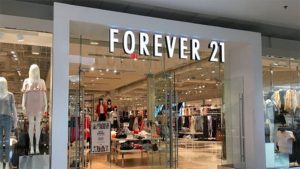Todo Moda is part of the Blue Star Group. Founded in 1995, its profit goes up to $300milions, has 850 stores, and 4500 employees in Argentina, Chile, Peru, and Mexico. This alone is remarkable, but why does it stand up among so many others who have also survived in a country with a difficult track record that has razed fortunes and whole companies. Is in this context that Todo Moda has managed to develop an international chain, showing qualities that deserve some recognition: resilience, keeping a clear north, a global vision, building a safe international supply, solving succession, and professionalism, including top-class method and expanding to international markets.
Let’s start with the resilience needed to survive in a country with a regular crisis that has, in the last 60 years, razed fortunes and companies. Todo Moda origin’s story is related to Carlos Castelli’s one.
At only 14 years old, he combined his technical studies with a job as a jeweler’s apprentice, assembling products in his room in the popular neighborhood Abasto. Those were the first steps of a rough road that would take him to the world. The next year, his technical training took him to develop a continuous welding method to produce metallic meshes for watches and jewelry, three years later he had a production team of 40 people. Yet, in 1967, a state-taxing operation, who monopolized the gold sale, closed the stores forcing him to become a street vendor looking for new clients every day to survive. As the gold-products demand decreased, his father-in-law showed him in 1973 the rise of silver chains in Europe squares. After finding a manufacturer in Bariloche with italian machines from the post-war era, he finds a jeweler to sell his pieces to. He sold out in a day. The success brings him to grow and expand his operation, he started buying in Orient, growing until the end of 1970’s crisis pushes him into debt. In the next seven years, he pays debts, producing for brands like Pierre Cardin who take him back to business until 1989’s new crisis, and back to paying debts it is. In 1994 he reaches for his next product: earrings but is not so easy. Trusting his experience and not ready to give up, in 1995 he decides to open his first shop: Todo por un peso (everything for $1). The store is small, next to Once’s train station, and some music speakers attract customers. Quickly, with success, he transforms it to Todo Moda, and his young kids Martín and Mariana tag along.
They open a few more shops, next to other train stations, where traffic is guaranteed, and then some new stores, in 2003, Isadora a new brand, aiming for grown women with more buying power seals his growth path.
The manufacturer can’t keep up, but a sustainable solution is needed. So in 2004, Castelli settles in Yibu, China, without knowing a word o chines, and in 6 months he trains a new manufacturer and his team in production techniques, settling a global supply agreement that lasts to this day. This way, his local production, the one that ensures the high rotation products, delivering every 72hs, is supplemented, ensuring the cash flow, not a minor detail in an Argentinian market, one of the most unstable in the world.
With Martin, Mariana, and Cecilia’s involvement, willing to study and develop, the family’s succession begins, with the complications these proceedings tend to have. The daughters bring the design to the pieces, while Martin, based on his engineering studies, is focused on procedures. The global vision starts to form. Better than the competitors, the company has an eye on the international players. A partner opens a store in downtown Mexico DF, the seed of international expansion where today lays half the store including Chile, Peru, Vietnam and in a short-term future, even Colombia and Brasil, fizzling out the risk of basing themselves in an unstable place like Argentina, who today represents 30% of sales.
A general manager set the tone for professionalization, and some advisors for retail practices worldwide with whom a team of engineers is formed, focused on the Todo Moda Machine. In a short time, experts with global experience in brands like Zara or Mango join the team, bringing world-class corporative practices, strengthening procedures and systems following the ideas of Martin, CEO of Blue Star Group.
In 2020 will have 2000 and 15.000 employees, with a $1000million turnover” he announced in a recent interview. Vision, company values and the qualities installed through the years will probably back these statements that place Todo Moda between the big fashion accessories players of the world.


